Leader of ECEPP
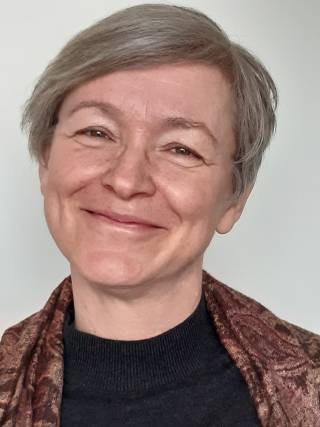 Zsuzsa Millei is a Professor of Early Childhood Education. Her research addresses child politics by exploring how politics (power, government, nationalism, and ideology) intertwine with childhood and children’s everyday life in child institutions. In her project on Microbial Childhood she aims to bring contemporary social theory and biological discoveries into transformative childhood studies. Her comparative studies of nationalism and explorations of childhood memories of (post)socialist societies use post/qualitative and artistic methods and reveal complex matrices of power and seek to decolonize the research imagination and knowledge production. Her current projects are:
Zsuzsa Millei is a Professor of Early Childhood Education. Her research addresses child politics by exploring how politics (power, government, nationalism, and ideology) intertwine with childhood and children’s everyday life in child institutions. In her project on Microbial Childhood she aims to bring contemporary social theory and biological discoveries into transformative childhood studies. Her comparative studies of nationalism and explorations of childhood memories of (post)socialist societies use post/qualitative and artistic methods and reveal complex matrices of power and seek to decolonize the research imagination and knowledge production. Her current projects are:
1. Everyday nationalism in child institutions
2. Microbial Childhood Collaboratory
See Zsuzsa’s publications here
Theme leaders of ECEPP
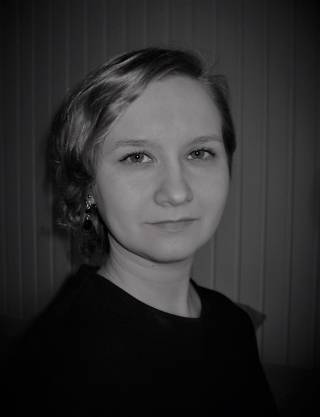 Maiju Paananen is an Associate professor. Her research focuses on potential sources of inequality in early childhood education and the intersection of policies and everyday lives of children and families. Lately, she has been interested two main themes in the field of Child politics: segregation of young children, and datafication in early childhood education and its consequences in the everyday life of children and educators in early childhood settings. Currently, she leads VADA, DataChild and EarlyCLASS research projects.
Maiju Paananen is an Associate professor. Her research focuses on potential sources of inequality in early childhood education and the intersection of policies and everyday lives of children and families. Lately, she has been interested two main themes in the field of Child politics: segregation of young children, and datafication in early childhood education and its consequences in the everyday life of children and educators in early childhood settings. Currently, she leads VADA, DataChild and EarlyCLASS research projects.
 Juliene Madureira Ferreira works as an Associate Professor and currently leads the subgroup Child Development and Diverse Needs in Early Years in the ECEPP research group. She received her Ph.D. in Psychology (Developmental Psychology) from São Paulo University in 2017, and her Ph.D. in Education from the University of Tampere at the end of 2018, followed by a two-year postdoctoral fellowship also at Tampere University. Before arriving at TAU, she worked as a teacher and educational psychologist at the Department of Educational Psychology of the Teacher Training School of the Federal University of Uberlândia, Brazil (2010-2017). Juliene Ferreira coordinated the administrative, academic, and research activities in areas of Early Childhood Education and the First years of Elementary Education (2012-2015), as well as one of the Programs for Teacher Education in Special Education in the National Network for Teacher Education in Inclusive Education, organized by the Ministry of Education in Brazil (2009-2014).
Juliene Madureira Ferreira works as an Associate Professor and currently leads the subgroup Child Development and Diverse Needs in Early Years in the ECEPP research group. She received her Ph.D. in Psychology (Developmental Psychology) from São Paulo University in 2017, and her Ph.D. in Education from the University of Tampere at the end of 2018, followed by a two-year postdoctoral fellowship also at Tampere University. Before arriving at TAU, she worked as a teacher and educational psychologist at the Department of Educational Psychology of the Teacher Training School of the Federal University of Uberlândia, Brazil (2010-2017). Juliene Ferreira coordinated the administrative, academic, and research activities in areas of Early Childhood Education and the First years of Elementary Education (2012-2015), as well as one of the Programs for Teacher Education in Special Education in the National Network for Teacher Education in Inclusive Education, organized by the Ministry of Education in Brazil (2009-2014).
In her research, Juliene investigates students’ sociability in challenging social interactions/contexts (e.g., when members of the group have significantly different developmental paths, or when groups discuss complex problem-solving strategies), analyzing how the diverse ways to establish intersubjectivity influence/impact peer learning. She is equally interested in how to improve teachers’ training, facilitating their learning to become more aware and equipped to support social interactions and collaborative learning in these challenging situations.
See Juliene’s publications here
Members of ECEPP in alphabetical order
 Anna Siippainen is currently working as a postdoctoral grant researcher in the VADA project, that examines datafication in early childhood education. In addition to this, Anna has worked on the CHILDCARE project funded by the Academy of Finland’ (Strategic Research Council), which looks at issues of equality in the early childhood education, preschool and care subsidies system (2015-2021). Anna’s dissertation concerned the relations between children and adults in early childhood education and care (ECEC) with extended opening hours from a perspective of governance. My research interests include childhood studies, the Finnish system of early childhood education and early childhood education policies, issues of management and equality, as well as children as part of the system.
Anna Siippainen is currently working as a postdoctoral grant researcher in the VADA project, that examines datafication in early childhood education. In addition to this, Anna has worked on the CHILDCARE project funded by the Academy of Finland’ (Strategic Research Council), which looks at issues of equality in the early childhood education, preschool and care subsidies system (2015-2021). Anna’s dissertation concerned the relations between children and adults in early childhood education and care (ECEC) with extended opening hours from a perspective of governance. My research interests include childhood studies, the Finnish system of early childhood education and early childhood education policies, issues of management and equality, as well as children as part of the system.
 Dr. Barbara Turk Niskač was Marie Skłodowska-Curie Research Fellow at the Faculty of Education and Culture from September 2022 to April 2025 and is currently Research Fellow at the Research Centre of the Slovenian Academy of Sciences and Arts, Institute of Anthropological and Spatial Studies. Barbara holds a PhD in Ethnology, Cultural and Social Anthropology from the University of Ljubljana (2016). She was a Fulbright visiting scholar at Rutgers University (2016), a postdoctoral research fellow at the Center for Advanced Studies – Southeast Europe CAS SEE, University of Rijeka (2018) and a postdoctoral research fellow at the Institute of Slovenian Ethnology, ZRC SAZU (2019-2022). Her main research interest lies at the intersection of the anthropology of childhood and anthropology of work, expanding also to children´s peer cultures, childhood memories, the anthropology of education, environmental anthropology, multispecies ethnography, visual and multimodal anthropology, and participatory methods.
Dr. Barbara Turk Niskač was Marie Skłodowska-Curie Research Fellow at the Faculty of Education and Culture from September 2022 to April 2025 and is currently Research Fellow at the Research Centre of the Slovenian Academy of Sciences and Arts, Institute of Anthropological and Spatial Studies. Barbara holds a PhD in Ethnology, Cultural and Social Anthropology from the University of Ljubljana (2016). She was a Fulbright visiting scholar at Rutgers University (2016), a postdoctoral research fellow at the Center for Advanced Studies – Southeast Europe CAS SEE, University of Rijeka (2018) and a postdoctoral research fellow at the Institute of Slovenian Ethnology, ZRC SAZU (2019-2022). Her main research interest lies at the intersection of the anthropology of childhood and anthropology of work, expanding also to children´s peer cultures, childhood memories, the anthropology of education, environmental anthropology, multispecies ethnography, visual and multimodal anthropology, and participatory methods.

Dr. Camila da Rosa Ribeiro is a performance-pedagogy artist and researcher drawing from the Black radical tradition and process philosophies. She creates arts-based processes to delve into how particular formulations of time naturalize distinctions between the human mind, non-humans, and the world. She explores concepts such as subjectivity, memory, and collectivity and its entwinement with the scientific stories told about education and childhood. Her work intends to contribute to a broad project of decolonization of thinking and doing research about futurity.
See Camila’s publications here
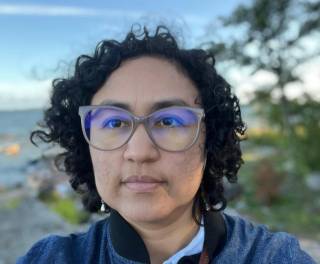
Cindy Herrera Huete is a first-year student of the master’s degree in Teaching, Learning, and Media Education at Tampere University.
Her interests are in cultural heritage education and teaching methodologies.
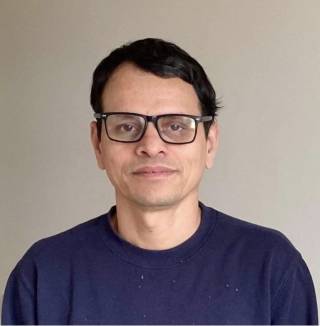
Devi Prasad Bhattarai is a doctoral researcher at the Faculty of Education and Culture at Tampere University. He investigates the schooling experiences of ethnic minority students in Nepal through an ethnographic field study supported by policy analysis. His study focuses on how these students navigate everyday life in schools, including classroom participation, language use, peer interactions, and relationships with teachers. It also examines how their cultural, linguistic, and ethnic backgrounds shape their engagement with the curriculum, and how institutional expectations may conflict with their own values, beliefs, and ways of understanding the world. By attending to both the opportunities and challenges they encounter, the study highlights the tensions between students’ experiences and the structures of schooling, offering insights into the broader question of how education in Nepal responds to diversity.
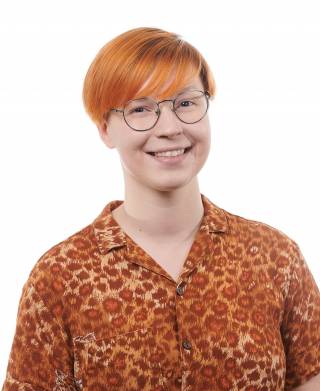
Eerika Länsmans studies in the Doctoral Programme of Education and Society at Tampere University. In her ongoing doctoral study, she focuses on the early childhood education [ECE] teachers’ professional well-being and turnover. She examines quantitatively what kind of well-being factors buffer or encourage ECE teachers to leave the ECE field.

Ezra Samantha Mancenido is a Master’s Student in the Faculty of Education and Culture. In her research project, she will explore how conviviality emerges when children and more-than-human agents are engaged in play. Using observations and creative methods such as drawing and taking photographs, she will investigate how play creates a setting of mutual transformation and living well together amongst species.

Jenni Perttu is a doctoral candidate at the University of Lapland’s Faculty of Art and Design, where she also earned her first Master’s degree in Textile Art and Design. She also holds a Master’s degree in Art Education from Aalto University and has completed specialization studies in adventure education. Perttu has worked with environmentally focused art education and community art for more than fifteen years. Her main research interests lie in early childhood art education, particularly in strengthening multidisciplinary communication and the relationship with nature through art education.
 Hanna Toivonen is a doctoral researcher, and she works as a researcher in the project Assessment and evaluation in datafied early childhood education (VADA) at the University of Tampere. Her research scrutinizes data governance in early childhood education by utilizing post-structural framework and sociomaterial theories. In her thesis she examines how data governance in early childhood education intertwine with municipality’s economy policies. The focus is to study what kind of tools are used to generate and interpret data for governing and how they interplay with each other. Her aim is to designate how such mundane policies materialize and what kinds of influences they have in everyday life of the preschool. Her study delves into multi-layered governance system by using ethnographic methods, such as preschool director’s autoethnographic diary, document data and interviews.
Hanna Toivonen is a doctoral researcher, and she works as a researcher in the project Assessment and evaluation in datafied early childhood education (VADA) at the University of Tampere. Her research scrutinizes data governance in early childhood education by utilizing post-structural framework and sociomaterial theories. In her thesis she examines how data governance in early childhood education intertwine with municipality’s economy policies. The focus is to study what kind of tools are used to generate and interpret data for governing and how they interplay with each other. Her aim is to designate how such mundane policies materialize and what kinds of influences they have in everyday life of the preschool. Her study delves into multi-layered governance system by using ethnographic methods, such as preschool director’s autoethnographic diary, document data and interviews.
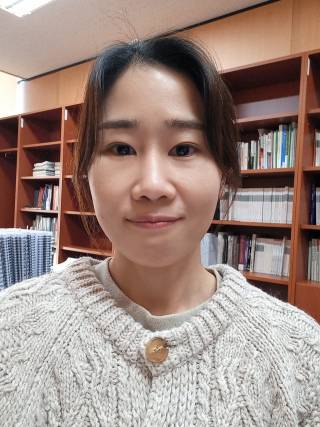 Dr. Inkyung Kim has been a Visiting researcher at ECEPP in 2023. Before, she has been a Research Fellow at Korea Development Institute since earning her PhD in Economics in 2011. She has researched childcare and education policies to promote child development and parents’ work-life balance. Her research focuses on presenting policy alternatives applicable to Korea based on empirical research using economic methodologies. She is a member of the Central Childcare Policy Committee of the Korean Ministry of Health and Welfare and an executive board member of the Korea Council for Children’s Rights. She’s also interested in the importance of the parental role in the child development. Based on understanding of the challenges of parenting, she seeks to conduct research to advance children’s skills and well-being. Details on her publications can be found on the Korea Development Institute website.
Dr. Inkyung Kim has been a Visiting researcher at ECEPP in 2023. Before, she has been a Research Fellow at Korea Development Institute since earning her PhD in Economics in 2011. She has researched childcare and education policies to promote child development and parents’ work-life balance. Her research focuses on presenting policy alternatives applicable to Korea based on empirical research using economic methodologies. She is a member of the Central Childcare Policy Committee of the Korean Ministry of Health and Welfare and an executive board member of the Korea Council for Children’s Rights. She’s also interested in the importance of the parental role in the child development. Based on understanding of the challenges of parenting, she seeks to conduct research to advance children’s skills and well-being. Details on her publications can be found on the Korea Development Institute website.

Mirka Kivimäki’s doctoral thesis examines how Finnish early childhood education institution is constructed in discourses of ECEC services, day care activities and family day care. In accordance with discursive institutionalism, institutions are understood as social orders whose nature and social purpose are negotiated through interaction and language-in-use at different levels of society. Kivimäki’s research is particularly interested in how local actors in day care centers and family day care participate in the negotiation of the ECEC institution. The study utilizes qualitative interview data collected in Finnish municipalities from municipal officials responsible for ECEC, parents of young children, and ECEC professionals. The results highlight how, in a nationally standardized ECEC system, the understanding of ECEC takes on varying meanings at the local level when examined in terms of forms of services. The study provides an opportunity to consider the possibilities and limitations of equality in different ECEC systems.

Muchammad Tholchah’s (Master of Education) doctoral thesis explores how male early childhood teachers in Indonesia construct the notion of professionalism within diverse social and cultural contexts. Based on interviews with male teachers from both rural and urban areas, the research examines how professionalism is actualized through their daily interactions with children, parents, and colleagues. Framed by social constructionism, the idea that questioned the ‘objective fact’, the study seeks to understand how these teachers define and give meaning to their professional roles, not through state-mandated standards, but through the complex interplay of power, gender, societal expectations, and cultural values embedded in their working environments.

Pragati Parihar (Master of Arts – International Relations) is a Doctoral Researcher at the Youth Research Department of Social Sciences at Tampere University. Her PhD project focuses on ethnographic research on indigenous youth climate activists in India. This project examines the motivations of indigenous youth climate activists in India, exploring how motivations are shaped by colonial, capitalist, and extractive tendencies that are a result of social difference, including gender, race, caste, & class. The study aims to (1) bring forth voices of indigenous people& contribute to building more inclusive, ecologically responsible, & rights-based sustainable policy making (2) highlight the role of youth activism in strengthening civic engagement (3) promote youth resilience strategies upholding democratic participation. The project strongly aligns with UN Sustainable Development Goals (SDGs), especially SDG 13 (Climate Action), SDG 15 (Life on Land) & SDG 10 (Reduced Inequalities). Her research interests include environmental and climate injustices, social movements, youth mobilizations, activism, and decolonization.
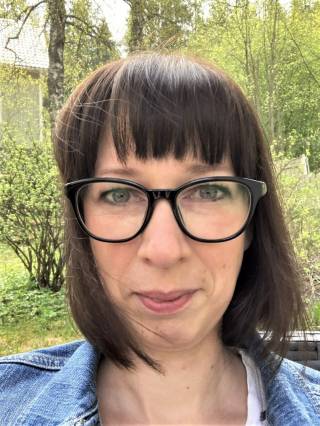 Salla Fjällström is a doctoral researcher in Doctoral Programme in Education and Society, and a member of Child Politics research group of ECEPP. In her PhD dissertation, she examines barriers of access to early childhood education and care (ECEC). Using both quantitative and qualitative methods her project aims to unravel what kind of local barriers of access might be produced for children and families from different kinds of socioeconomic backgrounds and living neighborhoods in a context of universal ECEC system of Finland. The data consist of parent survey and the interviews of parents and municipal ECEC administrators. The data were generated as part of CHILDCARE project in 2019. In addition, postal code -based data from the Finnish Environment Institute and Statistics Finland are utilized.
Salla Fjällström is a doctoral researcher in Doctoral Programme in Education and Society, and a member of Child Politics research group of ECEPP. In her PhD dissertation, she examines barriers of access to early childhood education and care (ECEC). Using both quantitative and qualitative methods her project aims to unravel what kind of local barriers of access might be produced for children and families from different kinds of socioeconomic backgrounds and living neighborhoods in a context of universal ECEC system of Finland. The data consist of parent survey and the interviews of parents and municipal ECEC administrators. The data were generated as part of CHILDCARE project in 2019. In addition, postal code -based data from the Finnish Environment Institute and Statistics Finland are utilized.
Fjällström’s dissertation is a part of CHILDCARE research project, which aims to examine potential sources of inequality in Finnish childcare and ECEC policies.

Sonja Laitila is a doctoral researcher with a focus on early childhood education. Her main research interests include play, play-based pedagogy, and adult-child interaction. She is passionate about understanding how these elements contribute to a child’s engagement and learning. In her doctoral dissertation, she is examining children’s engagement in language learning through play pedagogy. She is excited to explore new ways of supporting children through meaningful play experiences.

Venla Tammisalo (Master of arts (Education)) is a doctoral researcher at the Faculty of Education and Culture at Tampere University. In her PhD project, she explores how natural environments can support the wellbeing of early childhood education professionals, particularly in relation to their working conditions and everyday experiences in nature-based early childhood settings. The study aims to contribute to both academic understanding and practical improvements in the field by highlighting the potential of nature as a resource for professional wellbeing. Her work is motivated by a commitment to enhancing the sustainability and quality of early childhood education by addressing the wellbeing of those who work within it. In addition to her doctoral research, she is a researcher at the Research Centre for Education, Assessment and Learning (REAL).
https://orcid.org/0000-0003-4031-3231
https://researchportal.tuni.fi/fi/persons/venla-tammisalo
Other members are: Dr Jan Varpanen, A/Prof Riikka Hohti, Dr. Antti Paakkari, Dr Anna Kristiina Kokko, Katja Sirvio, Dr Norma Rudolph, Dr Mari Vuorisalo, Niina Rihivuori, Mervi Hakoniemi, Eva Järventausta, Johanna Vainio, Elisa Tanner, Mervi Eskelinen, Hanna Hjelt, Helka Keski-Panula, Fath E-Mubeen, Jaana Lahdeperä-Laine, Shreya Tiss,
